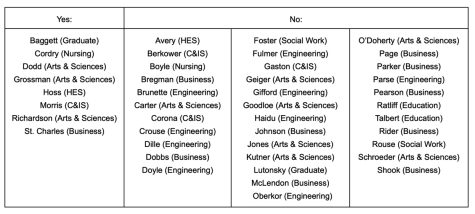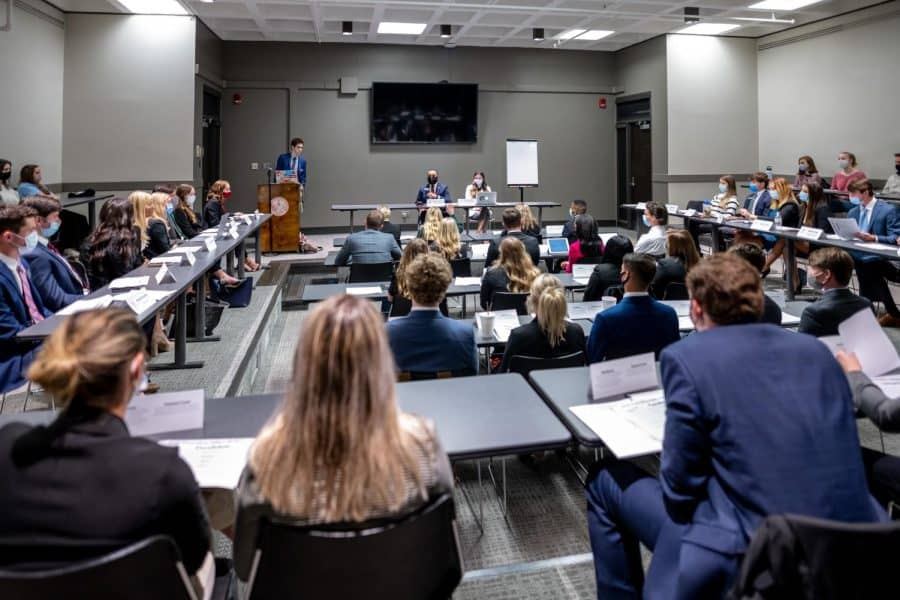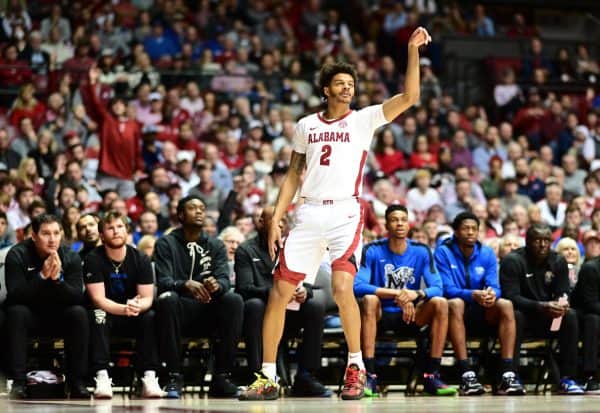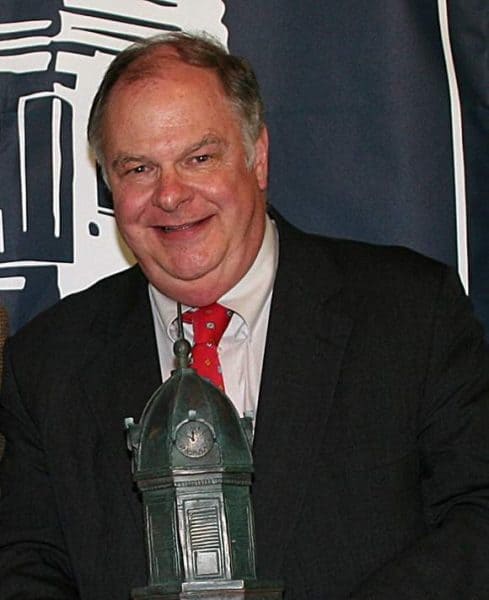Election reform legislation voted down by SGA Senate
UA students addressed the Senate following the fallout of the homecoming election. Two senators introduced election-related legislation, and both were voted down.
November 4, 2021
The Student Government Association Senate voted down two pieces of election-related legislation proposed during Thursday night’s meeting.
Student turnout
Students filled the Forum in the UA Student Center to capacity, and some addressed the Senate with concerns about the recent homecoming queen election, which included misconduct from the Elections Board.
The forum’s capacity was limited, so the SGA reserved 45 seats for senators, 19 for students, and one for The Crimson White.
The SGA provided a livestream of the meeting outside of the Forum for students who were unable to sit inside. Students outside the chamber had the opportunity to enter the Forum and address the Senate.
Garrett Burnett was the first to take the podium and asked the senators to raise their hands if they were Machine-affiliated. No senators raised their hands.
During and after the homecoming election, the SGA maintained its independence from the Elections Board. Burnett said the two are interconnected, even if SGA insists they’re separate organizations.
“I am thoroughly confused as to how the SGA maintains that the Elections Board is not part of SGA. I would love for someone to explain to me how the Elections Board has an entire section within the constitution — the governing document of all SGA entities — [but] is somehow entirely independent of SGA,” Burnett said.
Gabby Kirk expressed her disappointment to the Senate.
“I am very disappointed in the senate. For one thing, the senate scoreboard doesn’t lie. I’m in the department of education and I’ve heard nothing from my two senators … Two, y’all need to stop acting like the Machine doesn’t exist,” Kirk said.
Ranked-choice voting
Senator Drew St. Charles proposed a ranked-choice voting system for all executive elections, which failed in a 35-8 roll call vote.

St. Charles’ proposed legislation included homecoming queen elections following a series of discrepancies in this year’s election that exposed the Elections Manual’s lack of guidance for homecoming elections.
Ranked-choice voting is an electoral system in which individual voters rank candidates by preference on their ballots. If one candidate wins a majority of the “first-preference” votes, that candidate is declared the winner. St. Charles’ amendment defines a majority as 50% plus one vote.
If no candidate wins a majority of the first-preference votes, the candidate with the fewest first-preference vote is eliminated and the votes are retallied using the second-preference ranking. The process continues until a candidate wins an outright majority.
Senators John Dodd and Rachel Cordry sponsored the amendment, and Vote Everywhere UA endorsed it. UA student Cat Del Carmen proposed the idea of ranked-choice voting to St. Charles and worked with him to write his legislation.
“What ranked-choice voting does is it eliminates the runoff because you can rank … the candidate with the least amount of votes gets transferred up to their second preference … and then we’ll keep going until we reach a majority,” Del Carmen said.
St. Charles’ amendment outlined discrepancies between the SGA Constitution and the Elections Manual. VP for Student Life Myron Pope acknowledged that multiple aspects of the Elections Manual were “not written with homecoming queen in mind” in an email to the student body on Saturday, Oct. 30.
The SGA said discrepancies exist within the current Elections Manual in a statement released on Thursday, Nov. 4.
“We agree there are ambiguities present in existing election procedures, which have allowed for understandable confusion and varied interpretations,” the SGA wrote.
St. Charles said the outcome of the vote was expected.
“I kind of expected it to be honest. I mean, there’s only so much [independent senators] can do when we get up there and speak, because their votes are decided before they even walk in,” St. Charles said. “Somebody told them how to vote. And they’re just following orders.”
Senator Lauren Rouse said ranked-choice voting could be confusing to students.
“This was a very confusing piece of legislation for me … But I’m worried that this will decrease voter turnout because it’s new and confusing and [students] are afraid they’re going to [vote] wrong,” Rouse said.
Senator Rachel Cordry disagreed.
“As college-educated students I think we can figure out how to rank our opinions and that it isn’t that complicated,” Cordry said.
SGA Press Secretary Olivia Davis said the pieces of legislation presented tonight were given due process.
“We respect the rights of the legislative branch to exercise the powers granted to it by our constitution,” Davis wrote. “In partnership with several campus departments, we will continue to actively compile recommendations from our fellow students on future election procedure and policy.”
Elections Board reform
Senator John Dodd introduced a non-binding referendum to gauge student opinion on abolishing the Elections Board.
Sponsors for the act included Senators St. Charles and Cordry. The act failed and was denied a roll call vote by Speaker of the Senate Darius Thomas.
The non-binding referendum would gauge student opinion and require follow-up legislation.
“This is just data and opinions of the student body that we wanted to collect to see what they wanted,” Dodd said.
The question would have read as follows: “Are you in favor of abolishing the SGA Elections Board and forming a student body that is independent of SGA, and appointed by the Vice President of Student Life, to conduct oversight on all UA elections?”
“Tonight, the legislative body, the Senate, voted against hearing the students’ opinions on how they want their elections that they vote in overseen,” Dodd said.
Dodd encouraged students to reach out to their respective college’s representatives to voice their opinions and concerns.
“I’m pissed, unhappy … myself and Drew St. Charles both introduced legislation that would fix this debacle that’s happening. We’re trying to help the SGA recover from the damage that they’ve implemented on themselves,” Dodd said. “But tonight, it appears that the Student Government Association, especially the legislative body, doesn’t care what the student body has to say about this issue, and it is disgusting to me that the issue is democracy.”











